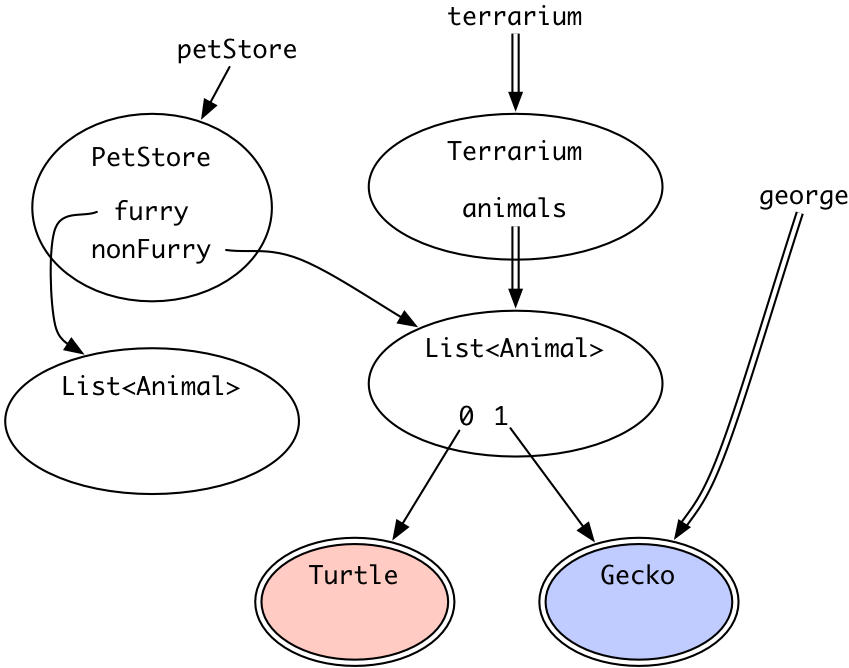Why Are Strings Immutable in Java? In-depth Analysis for Designers
Why Are Strings Immutable in Java? In-depth Analysis for Designers
Blog Article
What Is Immutable Strings and Just How It Functions
In the world of programs, recognizing the concept of unalterable strings is critical for producing safe and durable applications. Immutable strings refer to strings that can not be modified after they are developed, ensuring data stability and predictability within the code.
The Basics of Unalterable Strings
Immutable strings, as a basic principle in programming, are character series that can not be changed once they are produced. This indicates that when a string is assigned a value, that value can not be changed. In languages like Python and Java, strings are immutable things, causing numerous ramifications in terms of memory management and information stability.
Among the crucial benefits of immutable strings is that they supply a sense of safety and security in information control. Considering that the content of an immutable string can not be changed, it makes certain that the initial information continues to be intact, decreasing the danger of unintended changes during program execution (Why are strings immutable in Java?). This residential property likewise simplifies debugging procedures, as designers can trust that once a string is defined, its value will certainly not be unintentionally altered
Additionally, immutable strings help with effective memory use. When a brand-new string is produced based on an existing one, as opposed to changing the initial string, the brand-new worth is stored separately. This strategy enhances efficiency by decreasing memory fragmentation and streamlining memory allocation procedures. Overall, recognizing the essentials of unalterable strings is crucial for mastering shows ideas and maximizing code efficiency.
Benefits of Unalterable Strings
Structure upon the safety and security and effectiveness advantages of immutable strings, their advantages encompass boosting code dependability and streamlining simultaneous shows tasks. By being immutable, strings can not be modified after creation, which gets rid of the risk of unexpected modifications in the information they store. This integral immutability makes sure that as soon as a string is produced, its value remains continuous throughout the program's implementation, reducing the possibilities of pests caused by unexpected modifications.
Furthermore, unalterable strings contribute to code dependability by making it less complicated to reason concerning the state of a program. Considering that strings can not be altered, designers can rely on that a string will always hold the very same value, streamlining debugging and upkeep efforts. This predictability results in much more dependable and steady codebases.

Application in Shows Languages
Within numerous programming languages, the incorporation of immutable strings is an essential element that impacts just how data is managed and adjusted within code structures. The implementation of unalterable strings differs throughout various programs languages, with each language providing its very More hints own mechanisms to sustain this concept.

In comparison, languages like C and C++ do not have built-in support for unalterable strings. Designers in these languages have to by hand execute immutability by implementing guidelines within their code to stop direct modifications to string things.
Best Practices for Functioning With Immutable Strings
When dealing with unalterable strings in programming languages like Java and Python, sticking to finest practices makes certain secure and effective information adjustment. One of the crucial best methods is to use StringBuilder or StringBuffer rather than directly controling strings, particularly when taking care of extensive concatenation operations. These classes supply mutable choices for string manipulation, aiding to avoid unneeded memory allotments and enhancing performance.
In addition, when working with delicate information such as passwords or API secrets, it is vital to stay clear of saving them as ordinary message in immutable strings. Using protected storage space systems like char ranges or specialized libraries for managing delicate info aids alleviate protection threats linked with unalterable strings.
Real-world Applications and Examples
Discovering sensible executions of unalterable strings in various markets discloses their substantial effect on information integrity and system integrity. In the medical care field, immutable strings play a critical function in making certain the protection and confidentiality of person data. By stopping unauthorized adjustments to delicate details such as clinical records and prescriptions, immutable strings assist maintain conformity with stringent privacy laws like HIPAA.
Monetary organizations also gain from the immutable nature of strings to improve the safety of customer data and purchase records. Unalterable strings assist prevent scams and unapproved changes to monetary information, giving a robust protection against cyber threats and making certain the depend go to my blog on and confidence of customers.

Conclusion
Ideal techniques for working with unalterable strings include avoiding straight adjustments and utilizing methods that return new string things. Real-world applications of unalterable strings include data security, caching, and string manipulation jobs.
Unalterable strings refer to strings that can not be modified after they are created, making sure information integrity and predictability within the code. When a new string is produced based on an existing one, instead than customizing the original string, the brand-new value is saved independently.In languages like Java and Python, strings are unalterable by default, implying that as soon as a string object is produced, its value can not be changed - Why are strings immutable in Java?. Best practices for working with immutable strings consist of avoiding straight alterations and utilizing approaches that return new string items. Real-world applications of immutable strings include data file encryption, caching, and string adjustment tasks
Report this page